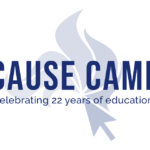
[PODCAST] Expert Tips and Tools from Chris Lesner for Successful Fundraising
August 14, 2023
NANOE HotelPlanner Travel Provider of Choice
August 16, 2023How to Fundraise and Better Allocate Your Time with Donors
Time is a precious resource for those looking for techniques on how to fundraise. When it comes to allocating time among donors, it’s crucial to maximize every second and every minute. There’s nothing worse than wasting precious time on a prospect that will never be fruitful.
You wouldn’t waste time trying to convince somebody they needed something if their heart just wasn’t in it. But too often, we ignore that logic when soliciting donors. While it’s impossible to know for sure who will give and who will dodge your attempts, you can make educated decisions about where to spend time.
According to Marc Pitman, founder of The Fundraising Authority, here is where you should focus your time with donors:
Planned Gifts
For planned giving, focus on loyal, small dollar donors who have given consistently over the years. Avoid getting distracted chasing people with the appearance of wealth. Stay focused on those loyal supporters.
Major Gifts
For major gifts, spend time with those who have both the capacity to give at a major level for your nonprofit, and evidence that they actually give at that level for other causes. Don’t waste time on those with capacity who don’t exercise it.
Unassuming Donors
Treat all donors with equal respect and appreciation. Major gifts sometimes come from small, dedicated givers that go under the radar. Wealth is about how much people save, not how much they spend.
Rely on Data
Avoid assumptions – do the work to find the hard data on giving history and capacity. Money doesn’t tell the whole story. Use metrics like Pitman’s CPI rating system to evaluate capacity, philanthropy, and interest.
Beyond where to allocate time, here are some key strategies for efficient fundraising:
1. Develop a Clear Fundraising Strategy:
- Set clear fundraising goals and objectives.
- Identify target donor segments (individuals, corporations, foundations, etc.).
- Determine the fundraising methods that best suit your organization (events, online campaigns, direct mail, etc.).
- Create a timeline and budget for your fundraising efforts.
2. Build Strong Relationships:
- Cultivate a genuine and personal relationship with donors. Make them feel valued and appreciated.
- Communicate regularly through personalized messages, updates, and thank-you notes.
- Tailor your interactions based on each donor’s preferences and interests.
3. Segment Donors:
- Categorize donors based on their giving history, interests, and engagement level.
- Prioritize major donors and those with a higher potential to contribute significantly.
4. Use Data and Analytics:
- Utilize donor management software to track interactions, contributions, and preferences.
- Analyze data to identify trends and adjust your fundraising strategies accordingly.
- Use data to personalize communication and tailor fundraising appeals.
5. Plan Effective Fundraising Events:
- Organize events that resonate with your donors and align with your organization’s mission.
- Leverage events to create opportunities for donor engagement and connection.
6. Leverage Online Platforms:
- Utilize social media, crowdfunding platforms, and your organization’s website for online fundraising.
- Create compelling online campaigns with clear calls to action.
7. Showcase Impact:
- Clearly communicate how donors’ contributions are making a difference.
- Share success stories, case studies, and data illustrating the impact of their support.
8. Provide Multiple Giving Options:
- Offer various giving levels and options to accommodate different donor capacities.
- Provide recurring donation options for consistent support.
9. Respect Donors’ Time:
- Be mindful of donors’ time constraints and commitments.
- Schedule meetings or interactions at their convenience.
- Keep communication concise and focused.
10. Automate and Delegate:
- Use automation tools for routine communication, such as thank-you emails and updates.
- Delegate tasks within your team to ensure efficient donor management.
11. Continuously Evaluate and Adjust:
- Regularly assess the effectiveness of your how to fundraise strategies.
- Adapt your approach based on donor feedback, changing trends, and results.
12. Invest in Stewardship:
- Allocate time and resources to stewardship efforts, including donor recognition and engagement initiatives.
Remember that successful how to fundraise and donor relationship management require ongoing effort and dedication. By implementing these strategies and continuously refining your approach, you can how to fundraise effectively and optimize your time allocation with donors.
With ongoing effort and refinement, you can optimize your fundraising strategy and time spent with each donor.
This article was originally published in the Nonprofit Hub Magazine.
Updated: August 2023
The post How to Fundraise and Better Allocate Your Time with Donors appeared first on Nonprofit Hub.
